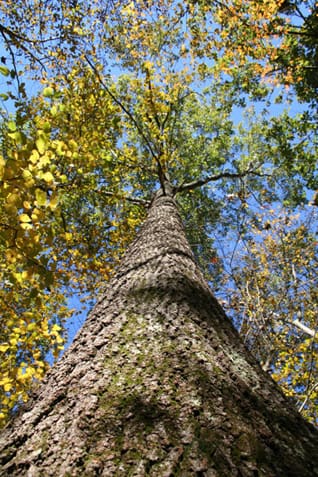
Hull’s Mill-Direct Custom Wide Plank Wood Flooring
We can make you a custom floor because we are a sawmill.
Whether you want a bespoke wood floor with consistent color, all sapwood or heartwood, or specific widths and lengths, we can make it for you. From luxury wood floors to traditional plank floors, our wide plank hardwood floors are always a green and healthy choice for your home.
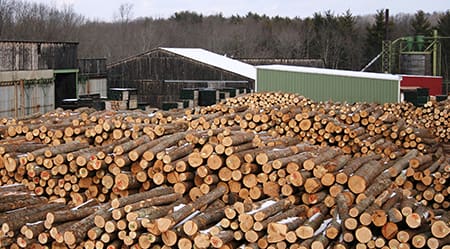
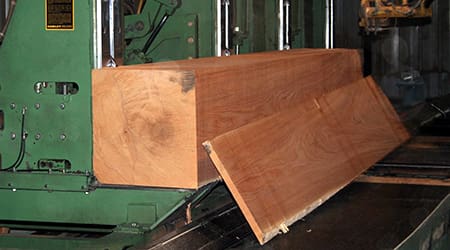
Only the top 10 percent of our lumber becomes a Hull wood floor.
We craft our floors from the very best of all the lumber we saw. Our graders make the final call on whether a board will become wide plank flooring or grade lumber.
Long plank lengths come standard with every wood floor.
Other manufacturers offer shorter lengths because they make their flooring by cutting around defects in the logs. We start with the highest quality logs, so we are able to offer the longest plank lengths.
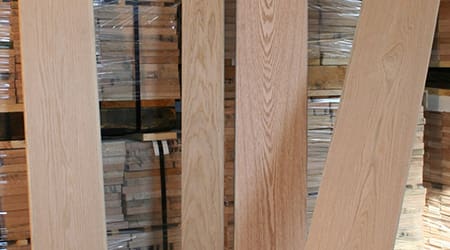
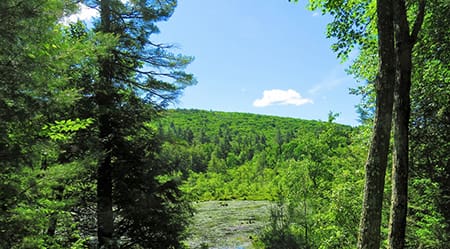
Our wood floors are made in the U.S.A. with wood from well-managed U.S. forests.
Using American-grown wood products, like eating local food, creates an incentive for landowners to keep their forests for generations to come.
Our wood floors come with a lifetime quality guarantee.
We expect our wood floors to hold up to generations of use, and we offer you a lifetime quality guarantee.
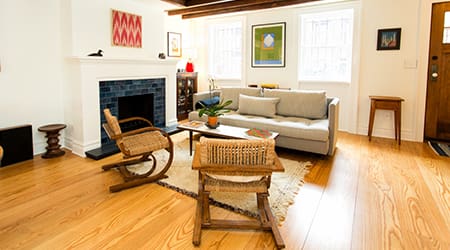
Crafting Our Wide Plank Floors
Our flooring logs are often sliced directly through the heart, a technique known as live sawing. This produces the widest boards with the greatest amount of vertical grain for added stability. In contrast, most lumber is grade sawn around a boxed heart. We also do quarter and rift sawing.
We mill floor planks from the best portions of the right trees – trees that we have chosen for appearance and special features rather than utilization.
We saw flooring logs differently from other logs, in the way that produces the most stable, wide and attractive plank floors. This approach, together with our commitment to crafting our flooring from start to finish, is what makes our wood floors so special.
We bring you locally grown, custom crafted wood products with distinctive quality at mill-direct prices.
Surfaces
You can customize you custom floor even further with a distinctive surface treatment that emulates a historic floor.
Skip Planing (Hit or Miss)
Skip planing, also know as hit or miss, creates occasional rough patches on the surface of the wood to mimic an antique patina.
Circular Saw Marks
These marks replicate those left by an old fashioned circular sawmill. The circular saw was invented in 1813 by Shaker sister Tabitha Babbitt of Harvard, Massachusetts.
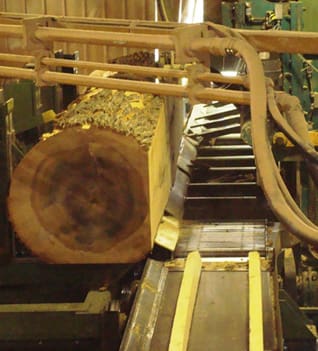
From Our Forest
For over fifty years, our family has grown trees, selectively harvested the wood, and hand crafted spectacular wood floors for our clients. We do this work ourselves to provide you with the highest quality wood floor at the best possible price.
Most wood floors today are made from mass-produced commodity lumber—limiting their originality and value to the customer. Most wood floors must pass from a manufacturer to a distributor to a retailer or even a contractor before reaching your home, with each transaction increasing your cost and decreasing the value you receive.
In contrast, a typical Hull plank floor comes directly from our forests and our sawmill to your home. We source our core products locally, supporting our region’s working forests. Then we harvest and mill the logs, turning local timber into flooring for your home. Should you need something that doesn’t grow well in our area, or something that we don’t already have in stock, we will work with our network of sawmill suppliers to find you what you need.
Our family business connects us to the entire lifecyle of the forest. We are tree farmers, foresters, sawyers, and craftsmen.
In addition to providing forestry services, we manufacture heirloom quality floors, post and beam timbers, and other products from local forests. When you sell wood to us, engage our services, or buy our products, you support sustainable forestry practices and help ensure the long-term survival of our region’s forests. By sustaining the market for local forest products, you encourage New England landowners to keep their forests instead of selling them for development. This is important because the number one threat to southern New England’s forests today is development.
Forests are complex ecosystems that enhance our air and water quality, provide plant and wildlife habitat, sequester carbon, and offer recreational opportunity, rural character, and open space as well as forest products to meet the needs of society. We are proud to care for the region’s forests so they can always be productive.
See What We Make with Your Timber: Watch a Video of the Process from Forest to Floor
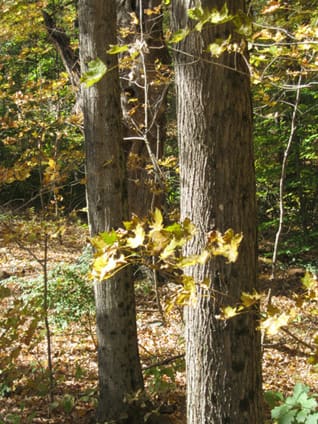
We Start in the Woods
It all starts in the woods, and our core products begin in the forests we steward, whether our own or our clients. We work directly with landowners to help them grow more value and volume from their forest. Our management tactics and income-producing strategies help deter development – the biggest threat to our region’s forests.
We are committed to helping our clients keep their forests as forests, and we do that by providing a market for their timber.
When you choose a Hull plank floor, you support local landowners and you sustain working forest that provide not only a source of timber, but also cleaner air and water, wildlife habitat, carbon sequestration, and recreational opportunity.
Your purchase helps promote a robust market for local wood. Without this kind of market, subdivision and development become a more attractive alternative to forestland for most landowners. We are proud members of the Connecticut Grown program, which helps consumers connect with local agricultural products.
When a harvest is planned, our crews do the job carefully. We hand select logs with beautiful grain or special features for our flooring production, and we utilize the rest for lumber. Nothing is wasted. There aren’t many companies who do what we do. Rare is the flooring manufacturer at liberty to choose flooring logs straight from the woods, and rarer still is the flooring manufacturer that manages its own forests. We believe in stewardship for the long haul, and we have permanently protected our forests from development so they will remain a source of timber for generations to come.
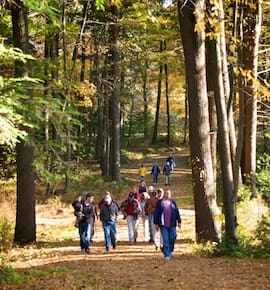
Our Native Woods
At Hull Forest products we make flooring wtih North American hardwoods, which happen to be the world’s most sought after woods, renowned for their strength, color and grain.
Using domestic wood products is essential to sustaining native forests. By choosing wood floors grown locally, you give landowners in our region an incentive to keep their land in forest.
Public benefits flow from sustainably managed woodlands – and we want to keep those benefits here. Clean air and water, wildlife habitat, biodiversity, carbon sequestration, recreational opportunity – these are but a few of the many benefits working forests provide in the United States. Learn more about the benefits of North American wood.
Our own forestland is located in the Hilltown and Berkshire regions of western Massachusetts and the Quinebaug Highlands region of eastern Connecticut.
Hull Forest Products is a proud contributor to the working landscape of protected forests that characterize rural New England. Our ongoing forest conservation efforts have permanently protected thousands of acres of working forests. We have forged partnerships with the Nature Conservancy, Norcross Wildlife Foundation, New England Forestry Foundation, and others who recognize that private forests provide public benefits that make them important to our region as a whole.
